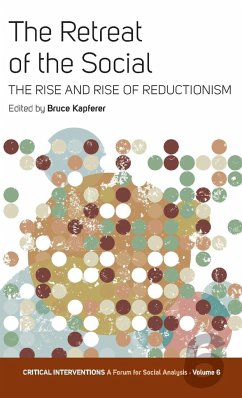
The Anthropologist as Writer
Genres and Contexts in the Twenty-First Century
Herausgeber: Wulff, Helena
Versandkostenfrei!
Versandfertig in 1-2 Wochen
131,99 €
inkl. MwSt.

PAYBACK Punkte
66 °P sammeln!
Accessibly written so as to attract students, scholars and generalists. Explores new ways of writing anthropology. Takes different anthropological genres seriously. Provides both theories and techniques for writing anthropology.












